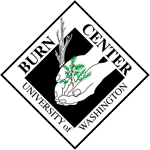Communication is everything!
-
Stay in touch with your employer. Make sure either you or a family member or friend keeps your employer up to date about your recovery and plans.
-
What to communicate
The most important information your employer needs is when you can likely return to work and if there will be any limitations in your work tasks or activities when you do return. Make sure that you keep your employer up to date on this information with regular calls, emails or visits.
-
How to communicate
Call your employer on the phone or visit your workplace when you feel able. Communication is KEY to your successful return. When necessary, provide your employer with a letter from your physician that states your activity limitations as it pertains to return to work. At the UW Medicine Regional Burn Center, we use a standard form that identifies a) if the patient may NOT return to work or b) may return to work and if so – at full duty or with modified duties. Additional information provided includes the patient’s next scheduled evaluation.
-
What to communicate
-
Make sure your employer knows you want to return to work and your medical team believes you can.
- Identify a specific person at work to be your contact. This may be someone in HR or your supervisor.
- Ask your physician to send notes to your employer with projected time lines for returning to work, your physical condition, and possible workplace accommodations (changes) you might need. Learn about workplace accommodations.
-
If you are not able to return to your previous job for a while, talk to your employer about jobs that you may be able to do during your recovery.
If you are working through vocational rehabilitation in the worker’s compensation system, they may pay for short term training and/or help you find another kind of work. If you are working through the state DVR program, they may also help you find another kind of job and that can include helping (and paying for) you to get additional training. If you are not working with vocational rehabilitation, you may be able to find some assistance in identifying alternative kinds of jobs and applying for jobs through state departments of labor. For example, in the state of Washington you can visit WorkSource on line at https://fortress.wa.gov/esd/worksource/ or at offices.



